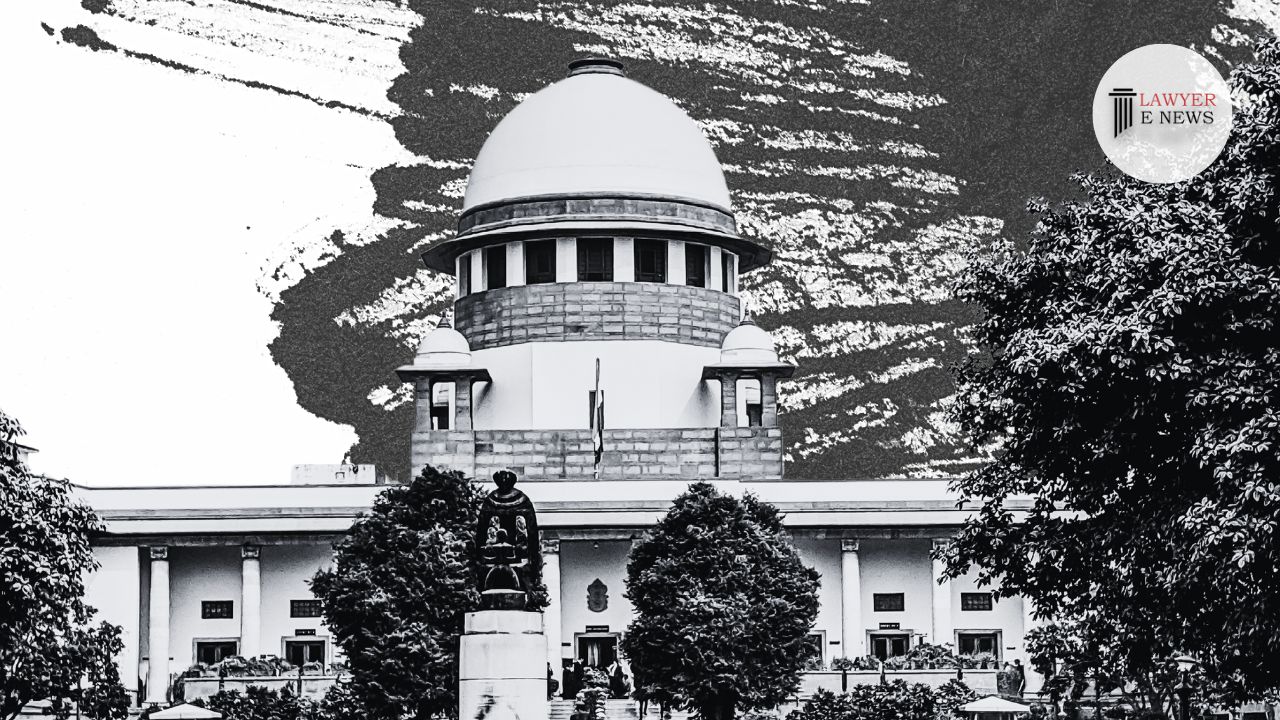-
by Admin
15 February 2026 5:01 PM



Supreme Court quashing the allotment of prime government land to Medinova Regal Cooperative Housing Society (MRCHS) on the grounds of procedural violations, lack of transparency, and favoritism. The Bench comprising Justice Sudhanshu Dhulia and Justice Ahsanuddin Amanullah held that the allotment violated Rule 27 of the Land Revenue (Disposal of Government Land) Rules, Maharashtra, 1971, and the applicable Government Resolutions (GRs) governing land distribution.
"Procedural Transparency in Public Land Allotments Cannot Be Compromised"
The Supreme Court underscored that the Maharashtra Government failed to adhere to the mandatory requirements of public notification and transparency in the allotment process. Referring to Clause 11 of the GR dated 09.07.1999 (later revised as Clause 12 in 2007), the Court held: "The State Government was required to issue press notes and invite public applications to ensure fair access to government land. This vital requirement was disregarded in the allotment to MRCHS, rendering the process arbitrary and violative of public policy."
The appellant, Proposed Vaibhav Cooperative Housing Society Limited, challenged the Bombay High Court’s 2012 dismissal of its writ petition against the Maharashtra Government's allotment of a prime Bandra plot to MRCHS.
MRCHS had applied in 2000 for a different plot at Bandra, citing the need to house employees of Tata Memorial Hospital. Despite MRCHS's repeated changes to its membership and failure to meet eligibility criteria, the Maharashtra Government issued a Letter of Intent (LoI) in its favor in 2003 and a final Letter of Allotment in 2008 for a plot different from the one it initially sought.
The appellant, who also applied for the same plot, alleged favoritism and non-compliance with mandatory procedures, including public notification and verification of eligibility criteria for MRCHS members.
Legal Issues at Hand
Was the allotment to MRCHS in violation of Rule 27 of the Maharashtra Land Revenue Rules and the GRs issued in 1999 and 2007?
Did MRCHS fulfill the eligibility criteria required for allotment, including membership composition and income limits?
Was the allotment process transparent and in conformity with public policy, including the requirement for public notification and open competition?
Did the High Court err in upholding the allotment despite clear evidence of procedural violations and arbitrariness?
The Court found that MRCHS had manipulated its membership multiple times to meet eligibility requirements, which it still failed to satisfy. Referring to Rule 27 of the Land Revenue Rules and Clause 6 of GR 1999, the Court noted that:
Several MRCHS members exceeded the income limits set by the government.
None of the MRCHS members were employees of Tata Memorial Hospital, contrary to the purpose cited in the allotment application.
Frequent membership changes undermined the core objective of the allotment, as stated in official records:
"The main object of sanctioning the plot of land to MRCHS, i.e., to provide housing to Tata Memorial Hospital employees, is not being satisfied due to changes in the composition of the society."
The Court criticized the Maharashtra Government for arbitrarily exercising its discretionary powers to allot land to MRCHS without any written justification, as mandated by Clause 12(8) of GR 1999. The Bench observed:
"The exercise of discretionary powers without recording reasons is inherently arbitrary and violates the principles of transparency and accountability in governance."
The Court emphasized the importance of public notification and inviting applications via press notes, as required under Clause 11 of GR 1999. It held:
"The failure to notify the public about available plots deprived eligible applicants of the opportunity to apply, undermining fairness and transparency in the process."
The Court noted that MRCHS was allotted a different plot than the one it originally applied for, without any explanation or compliance with procedural requirements. This deviation further tainted the process.
The Bench remarked: "Nothing has been brought to our notice to indicate that the plot actually allotted to MRCHS was ever sought by them. This, by itself, vitiates the entire allotment."
Reaffirming the principle laid down in Sachidanand Pandey v. State of West Bengal (1987) 2 SCC 295, the Court stated:
"Land is a precious material resource of the community, and its allocation must be transparent, fair, and in compliance with prescribed rules to prevent misuse and favoritism."
The Supreme Court quashed the allotment of the plot to MRCHS, holding that the entire process was arbitrary, lacked transparency, and violated the statutory framework.
The Bench held: "The allotment to MRCHS is invalid as it was based on procedural lapses, non-compliance with eligibility criteria, and lack of public notification. The High Court erred in upholding the allotment despite clear evidence of favoritism and irregularities."
The Court directed the Maharashtra Government to ensure strict adherence to transparency, public notification, and eligibility criteria in future land allotments.
This judgment reinforces the principle that government land is a public resource, and its allocation must be transparent, equitable, and in compliance with statutory rules. The Supreme Court’s decision to quash the arbitrary allotment sends a strong message against favoritism and procedural irregularities in public land distribution.
Date of Decision: December 12, 2024
